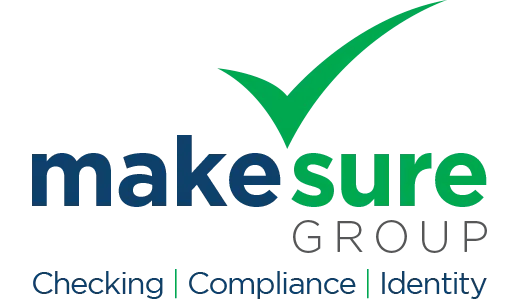Unmasking Gen-Z Scams, Deepfake Dangers, Rental Cons, and the Truth About Marketplace Fraud

The Cyber Sushi
(serving up the cold facts, with some phish bytes)
Welcome back! Here's what we are covering in this issue:
- Apply the Brakes: Zoomers (Gen-Z) and Scams
- Behind the Mask - a Guide to New and Trending Scams
- Ask Dr Lacey

Apply the Brakes: Zoomers (Gen-Z) and Scams
Here’s a fun fact for the Boomers (those born between 1955 and 1964) to serve with the gravy at the Sunday roast: your generation has actually reported engaging LESS with scammers this year (so far😊) than your Zoomer (aged between 18 to 24) grandkids. While the financial losses amongst Boomers are significantly higher (let’s face it, they have more money saved up), they are engaging less with scammers. In this newsletter, we are going to take a look at the scams targeting young people and, whatever age group you fall in, we hope you will share the content to help keep those so-called digital natives safe (Zoomers have been going online since they were in nappies).
Which Scams Hit Young People the Hardest?
Online shopping scams top the list, with young people two-thirds more likely to fall victim compared to the average IDCARE client. This is because young adults are quite comfortable scouring for bargains on Facebook marketplace and prefer to have their electronics delivered via Australia Post rather than having to front up at a retail store. They’re comfortable shopping online, and scammers are comfortable targeting them in this space.
Another major issue targeting Zoomers that may be a little hard to talk about (particularly at the dinner table) is sextortion. These are the facts though: Young men (aged between 18 and 24) are four times more likely to be reported as being involved in a sextortion scam than any other demographic. So, it really is important we have the chat.
In sextortion scams, a person is deceived into believing they are communicating with a potential sexual partner, and they are invited to share explicit photos. The scammer then blackmails the victim, threatening to distribute the explicit photos to their friends and family unless they pay up. In some instances, there might not even be photos that are exchanged. The criminal may send an email telling the person they’ve captured “comprising” photos of them through their webcam and threaten to share it. Whichever way it happens, sextortion scams take a huge emotional toll. We need to be informed about how we engage with people online and stay away from sharing compromising photos with someone we’ve never met in person.
Gaming Scams: Beware the malware hidden in the fun
Gaming scams involve people downloading fun-looking games, or purchases related to popular games they’ve seen online, only to discover the game had malware (malicious software) and they may be locked out of their device. What’s really awful is it might not only be the gamer’s device that is compromised. The malware can spread through entire households by compromising shared computers and networks. When you consider that 86% of 15 – 24-year-old Australians play online games, this is a big risk to watch out for and why we advise you to only use official websites for purchases related to games and not to respond to emails or messages asking you to click on links and provide personal or account information online.
Rental Scams: Young Women Five Times More Likely to Be Targeted
Late adolescence to early adulthood is a time of significant milestones, like moving out. Unfortunately, scammers prey on these happy events. Rental scams are particularly rife among young people, with young women falling victim at a rate five times higher than average. Typically, the scam involves looking for a rental property on Facebook, providing identity documents and payment to secure the lease, and then the scammer disappears.
Crypto Scams: Zoomers reported $1 million in losses to crypto scams last year 😧
We tend to think of investment scams as associated with retirees. However, many young people are dabbling in cryptocurrency as an investment opportunity. Young men aged 18-24 represent around a quarter of all crypto investors, and they are particularly susceptible.
Protecting Our Youth
You may have heard the phrase ‘Ok, boomer,’ signifying contempt for older generations. But have you heard ‘Are you ok, Zoomer?’ It’s clear that, despite their technical savviness, young people also engage with scammers. There really is a scam for everyone.

Behind the Mask - a guide to new and trending scams
Wildlife Wonder or Wallet Wipeout? The Robert Irwin Deepfake Scam
“Crikey mate”, who doesn’t admire the Irwin family. Steve, Terri, Bindi and Robert have all achieved so much. It’s Robert Irwin who has been gracing our television screens lately as he hosts various prime-time telly shows, which might explain why scammers have been impersonating him in investment scams. IDCARE clients have been reporting seeing videos of “Robert” promoting opportunities on social media platforms. When they click on the link to learn more, “Robert” may even tell them that the opportunity is “backed by Australia Zoo”. Of course, it’s not the real Robert. Criminals have used his image to create a video (called deepfake) of him.
OUR TIPS
If you see an investment opportunity being promoted by a celebrity –be suspicious! Celebrities are far too busy being famous to bother messaging you about investment opportunities. You can always check the celebrity's official website for any genuine endorsements.
Accumulated Risk of Data Breaches
We tend to think of data breaches as isolated events. It’s happened, you’ve changed your passwords, perhaps got a new driver's licence and now you can move on. However, criminals don’t operate on one-offs and there is a growing concern about the accumulated risk from the multiple data breaches that we have seen impact Australia. Criminals appear to be collecting data from all the breaches and they use it to form a profile of you to steal your identity. In 2024, community reports to IDCARE where the source of identity compromise is “unknown” jumped from 10-15% to over 30%. This points to risks from multiple breaches, not just a single notification.
OUR TIPS
Stay vigilant! Regularly monitor your credit reports and bank statements for unusual activity. Use strong, unique passwords for each account and enable two-factor authentication. Not sure what a credit report or two-factor authentication is? Visit our website at idcare.org where we have fact sheets and videos explaining it in easy-to-understand English.

Have a scam, identity or cyber-related question? Ask Dr David Lacey!
Having dealt with countless cases of scams, identity theft, and cybercrime, Dr. David Lacey is one of Australia’s most respected experts in the field. He is highly sought after by both government and industry for his unique insights into the online criminal environment. In this edition of Cyber Sushi, Dr. Lacey is inviting you to submit your questions – and we will answer them. Send your questions to [email protected].
Our question today comes from Jessica in Adelaide, South Australia:
Dear Dr. Lacey,
I experienced a troubling situation that I hope you can help me with. Recently, people have been showing up at my door claiming to pick up items they bought from me on Facebook Marketplace The problem is, I never listed these items for sale.
One person even claimed they had paid a deposit for a mattress that I never sold. This has happened multiple times, and I'm worried that my address might be used for scams. How can I prevent this from happening, and what should I look out for to avoid falling victim to such scams?
Thank you,
Jessica
Answer:
Dear Jessica,
Thanks for your email. I can only imagine how horrible it must be for you and your family to have someone arriving at your door to pick up an item you’ve never listed. How rude! But also how inconvenient for that other person who may have transferred funds to buy that item they were so looking forward to picking up at your address.
Scammers are very active on Facebook marketplace. We’ve seen a tripling of online shopping scams reported in June this year, compared to the same period last year. But at the same time, we’ve also become wiser to their tactics and we are more suspicious if they say they’re based in another state and ask you to post it.
Many people might ask, when looking at an item on marketplace, “Where do you live”, so they can decide if they’re interested. The scammer may then check where they live (from their profile) and suggest an address in that community (they only need to look up Google Maps for street addresses). They then pop in a street address in the hopes the person will feel more comfortable to continue the conversation.
They might then tell them they aren’t going to be home for a few days and ask them to pay in full for an item to secure it, or a holding deposit. They are keen to secure that bargain, they pay the amount, and then turn up on your front doorstep ready to pick it up.
Unfortunately, you can’t stop scammers from using your address. What you can do is post a note on your door to inform visitors that you’re not selling any items.
When it comes to buying items through platforms like social media marketplaces and they’re telling you to pay a pending deposit before pickup, just say no. Also, it is good practice to check a seller’s profile. If it has only recently been created, it’s healthy to be suspicious.
Best regards,
Dr. Lacey
*Jessica’s name and details have been changed to protect her identity.
Contact IDCARE
As always our free service for individuals is available on:
AU: 1800 595 160 or NZ: 0800 121 068 (there is no call charge)
Join the global list of organisations making a real difference in people’s lives by supporting our service.






















































Copyright © 2025, IDCARE. All Rights Reserved.
ABN 84 164 038 966








